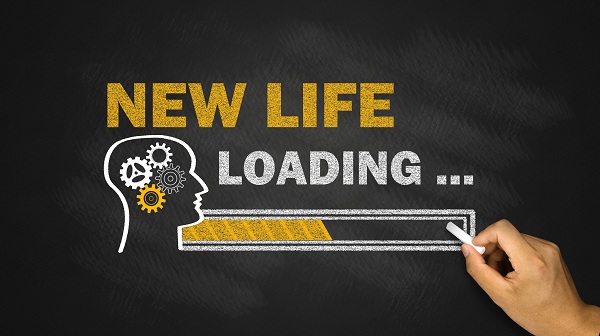As we approach the new year, it’s common to set resolutions for what you want to change and improve. We get motivated and usually stay on track for a while. Then, a few weeks into the new year, you’re asked how those resolutions are going. “What resolutions!?,” you say. It seems inevitable when we create goals for ourselves that more often than not, those goals seem to be unrealistic, perhaps unattainable. If you’re like most successful people, you want to experience results – and quickly. The key to long term success, however, is in developing the discipline to continue new practices while adopting a beginner’s mindset. Once you accomplish this, you can chunk down your resolution (goal) into manageable pieces which will allow you to stay on track by ensuring you have a clear outcome over time.
When starting something for the first time, it’s important to adopt a “beginner’s mindset.” This mindset allows you to acknowledge that you haven’t done this activity before, and as a result you can manage your expectations accordingly. For most overachievers and high performers this means learning how to lower the bar regarding your expectations. It’s uncomfortable. Most of us unconsciously assume the first time we do something it will turn out unrealistically well. For example, if you’ve played sports well at any competitive level, it’s easy to assume you’ll be equally successful when taking up a new sport. If you’re an accomplished business person, you may assume you’ll do well as you’re promoted, only to find you need new skills and expertise. A beginner’s mindset is the first step to success when facing new learning opportunities. Without changing your habitual, conditioned thinking your chances for sustained success diminish greatly.
With a beginner’s mindset, you can better manage your expectations of yourself and recognize that you won’t be a master at your first attempt at anything. So when you’re assessing your progress with resolutions, consider these questions from NLP (NeuroLinguistic Programming). This process is called “Outcomes, Well Formed Conditions,” and is one of the most effective tools available to set yourself up for success every time you begin something.
- What do you want? What will having that outcome get for you?
- How will you know when you’ve got it?
- Where, When, and With Whom Do You Want It?
- What stops you from having your outcome?
- What are the positive and negative consequences of getting your outcome?
- What resources do you need to get your outcome?
- Is the first step to achieving your outcome specific and achievable?
- Is there more than one way to get your outcome?
- What time-frames are involved?
- Imagine stepping into the future and having your outcome fully. Look back and determine what steps were required to achieve the outcome now that you have it.
Once you have adopted a beginner’s mindset and outlined what your outcome will look like, you must commit to your goal. Simply wanting to achieve the goal is not enough, you must fully commit physically, intellectually, emotionally and spiritually. Otherwise you will falter when things become difficult – which is why so many New Year’s resolutions are abandoned so quickly. True commitment and the pursuit of Mastery means you will develop the discipline and be coachable to learn over time and persevere to completion of the outcome. Being coachable means you’ll do whatever it takes including not stopping until the job gets done. Being able to clearly see your outcome (by answering the questions above) will keep you on track when things become challenging and it seems easier and more convenient to quit. Discipline is the only thing between most people and their success. When people ask me why most people fail at accomplishing their goals, my response is “discipline.” Discipline in our thinking, our practices, and our language. It’s simple stuff, however it’s not easy or convenient.
So what’s it going to be in 2017? The familiar, well-traveled path where you tell yourself “I’ll start tomorrow, or next year will be better”… this is the internal dialogue of your conditioned mindset and habitual practices which produce little or no change. Or will you forge a new path? Will you commit wholeheartedly to the new thinking, new practices, and new learning by adjusting your behavior, and never diverting based on what does and doesn’t work? As a friend of mine recently said, “sometimes, you’ve just gotta do the work.” Either way, the choice and the results are yours.
Categories: Uncategorized, YESS! Programs


